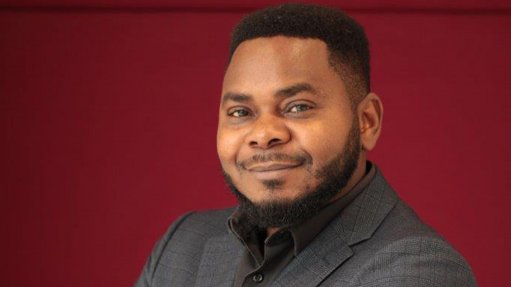
Professor Novel Chegou
Photo by: Stellenbosch University
Stellenbosch University (SU) Biomedical Sciences Department Professor Novel Chegou has been awarded the Royal Society’s Africa Prize for 2022.
The Royal Society is the UK’s scientific academy, although with many leading international members, and is the oldest such body in the world, having been founded in 1660.
Chegou, who hails from Cameroon, was awarded the prize for his work in the areas of pulmonary and extrapulmonary tuberculosis (TB). The prize takes the form of a bronze medal and a cash gift of £2 000.
“It is a huge honour,” he said. “We are passionate about the kind of research we are doing. All we want to do is contribute to developing tools for the control of TB, if we can, and also to train students and publish data.”
Chegou heads one of the five research laboratories of the SU Immunology Research Group. He did his initial medical scientific training at Cameroon’s English-language University of Buea, and subsequently completed his Honour’s degree at SU, followed by an MSc, also at SU, which was upgraded to a PhD.
The Royal Society’s award is not the first prize he has won during his career. In 2005, he won the South African Society for Biochemistry and Molecular Biology award for the best Honour’s student in South Africa. In 2015, he received both the SU Rector’s Award for General Performance and the Unesco-Merck Africa Research Summit Young Researcher Award. In 2019 he received the South African Medical Research Council’s Silver Scientific Achievement Award.
Chegou has been largely focused on discovering biomarkers for TB that could be used to develop tests that would allow theearly diagnosis of the disease. He now intends to focus on biomarkers that could be used to diagnose TB meningitis in children. Currently, this is difficult to diagnose, but delayed diagnoses result in the infected children developing neurological problems.